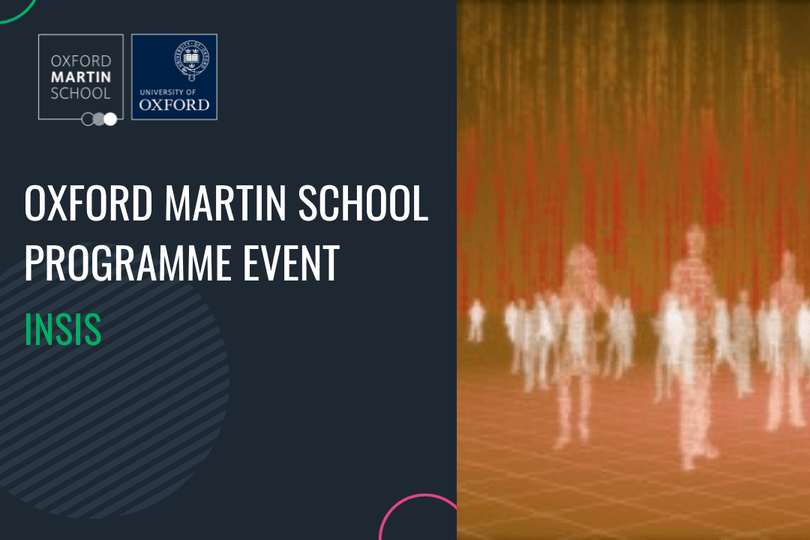
Edited by Andrea Saltelli and Monica Di Fiore, “The Politics of Modelling” offers an up-to-date multidisciplinary view and perspective on the use of modelling that makes modelling accessible to a non-technical audience. The authors will discuss the key contributions of the book including on the role of modelling over the management of the COVID epidemic.
This event is organised by the Institute for Science, Innovation and Society (InSIS).
REGISTRATION
- For full details and to register to attend this event: Book presentation: The Politics of Modelling Tickets, Mon 20 Nov 2023 at 14:00 | Eventbrite
Panel:
Andrea Saltelli (Editor) is presently academic counsellor at UPF-Barcelona School of Management, visiting researcher at the University of Bergen, Centre for the Study of the Sciences and the Humanities, and associate researcher at Institute for Cognitive Sciences and Technologies of the Italian National Research Council (CNR). His papers tackle sensitivity analysis and auditing, statistical and mathematical modelling, the rational of evidence-based policy, science’s integrity, sociology and ethics of quantification, the post-truth debate and the role of science in processes of regulatory capture (www.andreasaltelli.eu).
Wendy Espeland is Professor of Sociology at Northwestern University. She received her Ph.D. in sociology from the University of Chicago. She has devoted much of her career to investigating how quantification shapes politics, group identities and organizations in different institutional contexts. Her books include The Struggle for Water: Politics, Rationality, and Identity in the American Southwest and (with Michael Sauder), Engines of Anxiety: Academic Rankings, Reputation, and Accountability, and is a co-editor of Worlds of Rankings. She has received fellowships from the Swedish Collegium for Advanced Study, Institute for Advanced Study in Berlin, Radcliffe Institute at Harvard, and the Russell Sage Foundation.(sociology.northwestern.edu/people/faculty/core/wendy-espeland.html)
Jerome Ravetz came to England as a Fulbright Scholar, and did a PhD in mathematics at Trinity College, Cambridge. He was Reader in the History and Philosophy of Science at the University of Leeds before taking early retirement to found The Research Methods Consultancy. He wrote the seminal book Scientific Knowledge and its Social Problems (1971, 1996). Jerry’s current work is in the borderland between research and search. He is grappling with issues of growth and decay in science, in the context of the erosion of inherited certainties and of societal transformation (www.jerryravetz.co.uk).
Marta Kuc-Czarnecka is the deputy head of the Department of Statistics and Economics at the Faculty of Management and Economics of the Gdańsk University of Technology. She is a co-founder of Rethinking Economics Gdańsk and a member of the Foundation Edward Lipiński for the promotion of pluralism in economic sciences. In 2018-2022, she was Eurofound’s quality of life and social convergence expert. In 2023, together with a Ph.D. Aneta Sobiechowska-Ziegert founded the Scientific Circle of Socio-Economic Analyzes “Econoptics”. She is a certified GIS analyst passionate about modern data visualization methods. Her scientific work focuses on composite indicators, the ethics of quantification, and sustainable development quantification.
Andy Stirling is Professor of Science and Technology Policy at the Science Policy Research Unit at the University of Sussex, where he co-directed the ‘STEPS Centre’ for sixteen years. Working on issues of power, uncertainty and diversity in science and technology (especially around energy and biotech), he has served on a number of UK, EU and wider governmental advisory committees including (presently) as a lead author for the Intergovernmental Panel on Biodiversity and Ecosystem Services (IPBES) (profiles.sussex.ac.uk/p7513-andrew-stirling).
Arnald Puy is Associate Professor in Social and Environmental Uncertainties at the University of Birmingham (UK). Previously, he has been a Humboldt Fellow and Marie Curie Fellow at the University of Cologne (Germany), University of Haifa (Israel), Princeton University (USA) and University of Bergen (Norway). His work focuses on understanding and appraising uncertainties in contentious phenomena, especially those related with agriculture, climate and water resources. He makes use of mathematical models, uncertainty and sensitivity analysis, post-normal science and philosophy of science, and ethics of quantification. (research.birmingham.ac.uk/en/persons/arnald-puy)